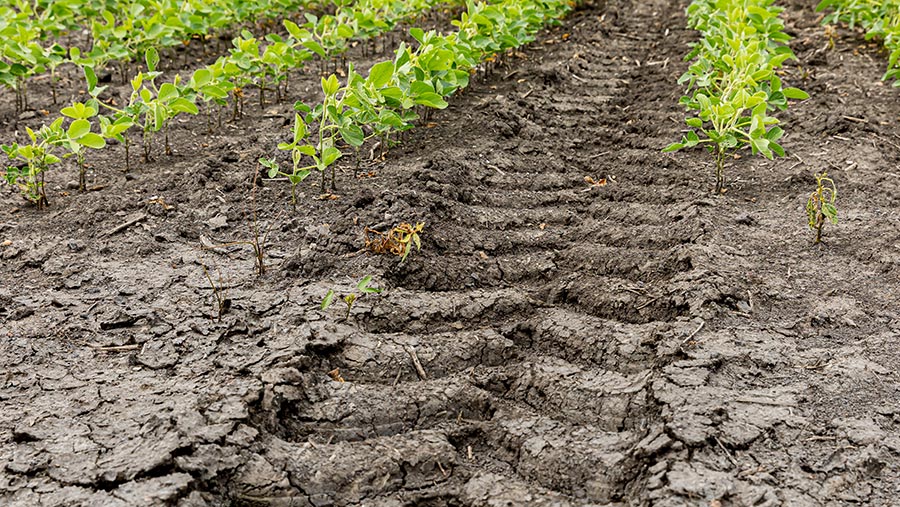Heavy machinery jeopardises global food security, study warns
 JJ Gouin/Adobe Stock
JJ Gouin/Adobe Stock Up to a fifth of global arable land is at high risk of subsoil compaction due to the heavy farm machinery working the fields, researchers have said.
A new study concluded that farm vehicles are becoming so heavy they jeopardise future food security in Europe, the US and Australia.
See also: How to reduce soil compaction and optimise crop yields
Larger and more flexible tyres have limited the damage on the surface, but below the topsoil, the soil is becoming so compact that its long-term production capacity is threatened.
The researchers, Professor Thomas Keller from the Swedish University of Agricultural Sciences, and Professor Dani Or from the ETH Zurich in Switzerland, investigated the impact of modern combine harvesters on arable land.
The researchers calculated that the total weight of laden combine harvesters has increased from about 4,000kg in 1958 to 36,000kg in 2020.
The study found that contact stress on the soil surface has remained at a low level during this period, because the machines have been fitted with ever larger tyres that distribute the weight over a larger surface.
However, in the subsoil, compaction increased to levels that jeopardise the soil’s ability to produce food, raise the risk of flooding and disrupt other important ecosystem functions.
Prof Keller said: “Above all, the wheel loads of modern farm vehicles need to be reduced to not affect the subsoil to the same extent as today. The heavier the machines, the worse for the subsoils.”
Farmer response
But Merseyside grower Olly Harrison said farmers could only reduce machine weights to what was economically possible.
“We need wider and bigger machinery because staff are not there, yet we need to be productive.
“But equally we don’t want to damage it [the soil] because it costs us money,” Mr Harrison told Farmers Weekly.
“We know we can’t grow good crops in compacted soil, so we manage that. We obviously use the widest, lowest-pressure tyres we can, we try and keep the traffic down on there [the fields] to a minimum, be that every 12m or controlled traffic.
Mr Harrison said the agricultural industry had spent millions of pounds to try to reduce farm machinery’s pressure and footprint on the soil.
“We know if we don’t get it right, we don’t yield,” he said.
“We keep our tramlines in the same place every year, we don’t ever want to grow anything in that place, it is not economical.
“We want to make sure when something does go on the field, it always goes in the same place.
“It is sacrificial, but it means the rest of the field can be 100% productive.”

